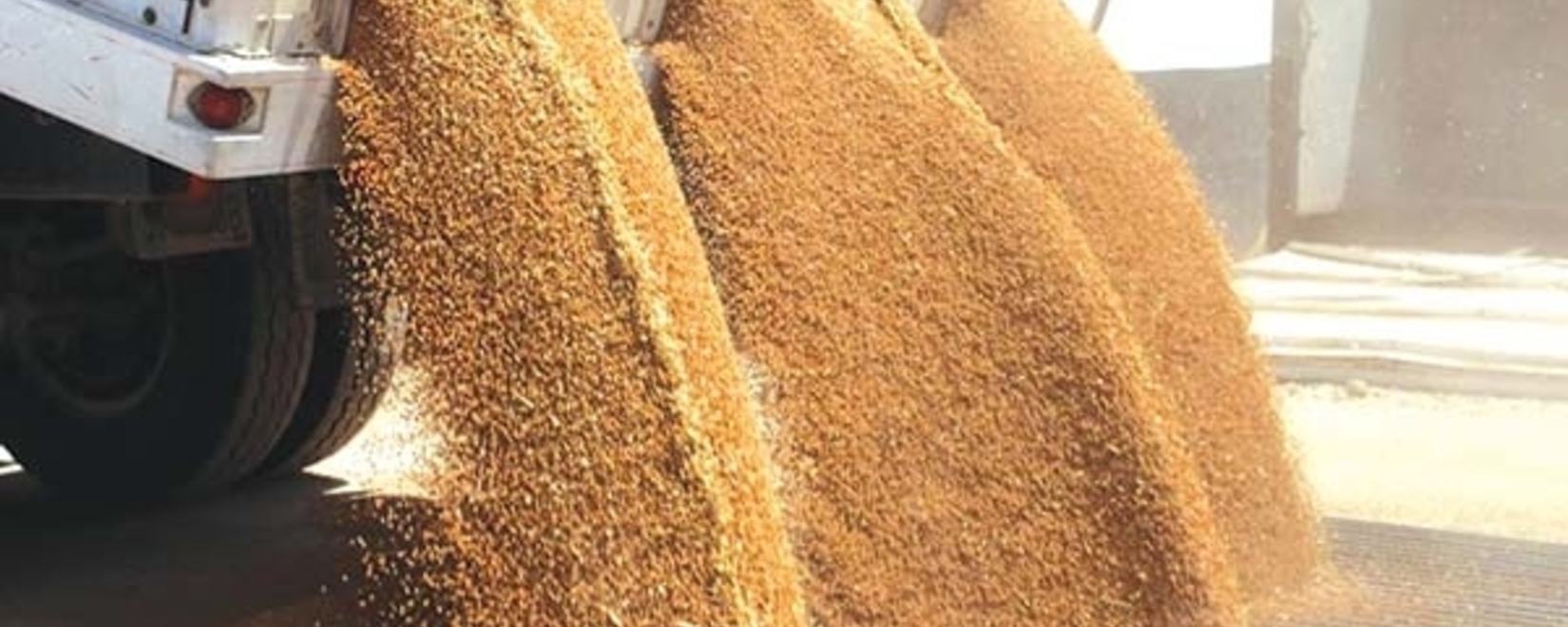Kazakh wheat becomes "toxic"
June 19, 2023 08:00
In the flour market this season, everything is at a loss - both the Kazakh grain processors themselves and their main buyers in the countries of Central Asia. The reason is the fall in wheat prices. That is, grain millers took 120 thousand tenge/ton in autumn, and now they have to sell flour at 115-110 thousand tenge/ ton. They work in the negative. The same is true for buyers - they bought flour at the same price, and then it fell in price. That is, a month ago the price was $260, now it is $240 per ton. It is impossible to store it for a long time now, during the heat, and warehouses are forced to drain the goods at the current price - at a loss.
- At the same time, the state also knocks the ground out from under our feet, producers-exporters, refusing to refund VAT, - ElDala told the portal.kz Alikhan Talgatbek, President of the Union of Grain Processors of Kazakhstan.
Industry crisis
The situation in the grain processing industry of Kazakhstan is critical. In particular, 90% of mill complexes are idle in Kostanay region, where most of the country's flour-milling enterprises operate. The situation is similar in other regions. According to the results of June and July, statistics will show the strongest drop in flour exports from Kazakhstan. This is bad for the country - foreign exchange earnings are declining, jobs are being lost. In addition, unclaimed grain leads to an increase in the rolling stock, which in turn puts pressure on wheat prices.
There are several reasons for this situation. The main issue is the low purchase prices for flour offered by buyers of Afghanistan, the main market for Kazakh flour in recent years. Taking into account the prices of raw materials and the selling prices of the finished product, the profitability of flour milling has gone into a negative plane.
- Russian wheat at the Kostanay station will cost about 14 thousand rubles / ton (this is without VAT), - explained Alikhan Talgatbek. - Local wheat - about 90 thousand tenge (this includes VAT). The export price of low-quality flour, which Afghanistan takes, at the border is $240 (DAP Saryagash). At best, $250. This price includes $45 delivery from Kostanay to Saryagash station. At the same time, even if we take Russian wheat, without VAT, the cost of a ton of flour is now $ 270. And in order to get at least a small profitability, the sale price on Saryagash should be at least $ 285.
Central Asian buyers do not want to pay more now and cannot. Everyone's warehouses are full due to the fact that from December to April there were colossal volumes. This led to overstocking of the market. In addition, there are expectations of a further decline in prices for both grain and flour. This forces buyers to take a break and abandon contracts.
The factor of wheat surplus in Russia also comes into force - it is looking for new markets, including by increasing the production and sale of flour.
- Russian flour is being shipped to Afghanistan through the Caspian Sea, - said Alikhan Talgatbek. - It is unloaded in Turkmenistan and transported overland to Afghanistan. It is cheaper.
VAT Trap
The second most acute problem is the non-return of VAT by the state to flour exporters. This immediately takes the entire economy of grain processors to a minus by 12%. Given that production is already low-margin, the meaning of such work disappears, and enterprises stand up.
- The state has very large VAT debts to the industry now, - said Alikhan Talgatbek. - In general, the budget owes grain processors more than 40 billion tenge at the moment. There are enterprises that have not been paid 1.5-2 billion tenge. They have mostly accumulated over 2022. And as far as we understand, no one is going to pay them. As a result, without VAT refund, the calculation of production goes down by 15-20%.
The reason for non-payments is that the tax authorities had doubts about one of the partners-suppliers of flour milling companies that he, in turn, had paid VAT. This slows down the tax refund for huge amounts.
- The chain is as follows: the trading house exported flour by buying it from the mill, - explained Alikhan Talgatbek. - That is, he took over the VAT of the mill. The mill, in turn, bought wheat, for example, from the "Food Corporation". "Food corporation" is still with someone else, those are still with someone else. And somewhere in this chain, the tax authorities found some violations. And as a result, VAT is not returned to the exporter - the trading house. And there it is still not completely clear whether the violation was related to the purchase of wheat or not. Maybe it was about some services. Or about the sale of other types of agricultural products. We don't know what was there in the fifth or sixth knee. But the result is the same - the exporter does not receive a VAT refund.
Dangerous grain
The flour market will slowly begin to recover only by autumn, when warehouses in Central Asia will become empty. However, the question arises how the experience of this season will affect the future. Alikhan Talgatbek draws attention to the fact that more and more millers are coming to the conclusion that Kazakh wheat is becoming "toxic" (in an economic sense). That is, it is dangerous to work with it, since it is almost impossible to return VAT. It is easier and more profitable for domestic processors to switch to Russian grain. Or in general - to transfer production to a neighboring state, Uzbekistan or Russia.
- There are no VAT refund problems with Russian grain, - said Alikhan Talgatbek. - You buy it, pay VAT on import, and even in this case it will cost the same as Kazakh wheat, or even cheaper. You process and export flour, and you get a VAT refund without any problems. And it is better not to work with Kazakh wheat, it is "toxic", now all millers understand this well. If you take one ton of Kazakh wheat, some problems will begin to go through it - and you will not receive a VAT refund for all your exports at all. Why do we need these problems? I repeat: it is now easier to import raw materials, process them and export the finished product. And not to mess with Kazakh grain. This is a global shift in the mentality of processors, and if it happens, it will be very difficult to go back.
The expert also draws attention to the fact that there are foreign businessmen among the mill owners in the same Kostanay. They look at the business conditions in different countries and choose the optimal ones. If in Kazakhstan, through the fault of the state, there are now such problems for exporters, then it is quite possible to transfer enterprises to Uzbekistan or Russia, where there are no problems.
Pressure on prices
The result is clear to all industry participants: since millers are the second most important buyer of Kazakh wheat (after traders), their refusal to purchase Kazakh grain will lead to a sharp increase in the unclaimed supply on the market. This will put even more pressure on prices. And Kazakh wheat will continue to get cheaper until it equals the price of Russian wheat. And prices in the domestic market of Russia are now, we recall, at the level of 10-11 thousand rubles / ton, in terms of the current exchange rate - 55-60 thousand tenge. Kazakh wheat is now offered at 81-82 thousand tenge/ton.
Of course, a lot will depend on what kind of harvest both Kazakhstan and Russia will receive this year. And in general - what will be the world prices for wheat. While everyone is waiting, watching the weather. There is a risk of drought in Kazakhstan, and there is also a strong heat in the border regions of Russia. But it is too early to make forecasts, more or less the situation will begin to emerge in mid-July. Then it will become clear what prices the market will expect for wheat and flour in the fall.

 Trading platform
Trading platform 
 Monitoring
Monitoring  Express applications
Express applications 
 Fork Work
Fork Work 
 Service
Service  News
News  Directory
Directory 
